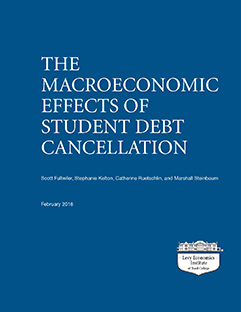
Publications
Capital Gains Taxes and Economic Growth
Effects of a Capital Gains Tax Cut on the Investment Behavior of Firms
This brief assesses the effect of a capital gains tax cut on firms’ decisions to undertake new investment projects and the possible effect of such projects on economic growth and employment. The authors' analysis takes into account such factors as projects’ degree of uncertainty, investors’ degree of risk aversion, whether capital gains losses are deductible against capital gains income, whether the market value of an investment project is affected by the imposition of capital gains taxes, and whether the project is financed by internal or external means. They find that there is little theoretical or empirical basis for the view that lowering the capital gains tax rate would have a substantial effect on economic growth or level of economic activity. They estimate that the current proposal to lower the highest capital gains tax rate from 28.0 percent to 19.8 percent would have a long-term effect on the level of output no greater than the impact of roughly two months of normal economic growth, and it would take years to realize even this small benefit. Indexing the rate to inflation would have a somewhat larger, but still small, effect. The authors conclude that capital gains taxes have a negligible influence on investment decisions and dispute the claim that a lower capital gains tax rate would have large beneficial effects on output, growth, or entrepreneurial activity in the US economy.

